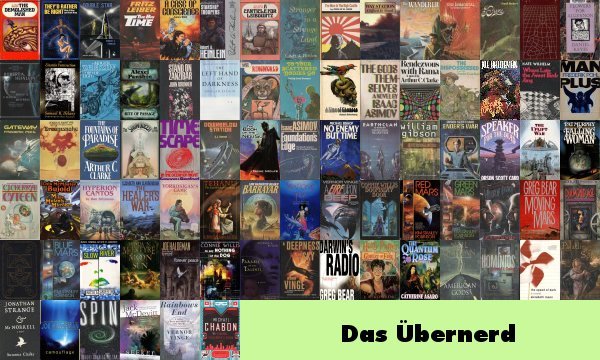 Michael Whelan
Michael Whelan1992 Hugo Winner for Best Professional Artist
The cover of The Summer Queen
by Michael Whelan
1992 Hugo Winner for Best Original Artwork
It's flashback day here! Starting with the art which is the cover to the sequel to the 1981 Hugo winner The Snow Queen. These is also Michael Whelan's final Hugo awards for a while, numbers eleven and twelve for him.
"Beggars in Spain"
by Nancy Kress
1992 Hugo Winner for Best Novella
1991 Nebula Winner for Best Novella
The day after tomorrow genetic modifications to prenatal infants becomes a common thing and people select physical traits. A new one becomes available which removes the need for sleep and offers a dramatic improvement in intelligence and life span thanks to its side effects. They've also established an extreme version of libertarianism as an economic and political force. One of the richest men in the world wants a daughter who does not need to sleep but when the modified embryo is implanted a sibling who has not been modified also develops. Kress's story follows the life of the modified sibling as she deals with a dysfunctional family, the fears of a populous who are reacting to a perceived new master race, the tendency of those who do not sleep to hold themselves over those who do, and the ultimate limits of libertarianism.
The idea of a genetic superman being held apart of humanity is one of the oldest in science fiction but Kress managed to put a very interesting spin on things. First the lack of sleep is an interesting vector for a superior being; it's something that every reader can relate to and it opens interesting storytelling directions. Also her sleepless have many biological advantages but many social disadvantages. While being recognizably human they are building a hostile culture. The hostilities are a two way street and Kress gives the reader a front row seat to its development on both sides. Part of this is how well rendered the characters are and how well Kress portrays a very complicated moral situation. As a result I found this to be a spectacular story.
"Gold"
by Isaac Asimov
1992 Hugo Winner for Best Novelette
It feels odd to me that Isaac Asimov died in April of 1992, it seems like I just heard the news the other day. When the biggest name in science fiction passed away it was only natural that anything he wrote just prior to his death would be a likely selection for a tribute award. In fact this isn't even his last Hugo: his collected memoir won in 1995 for related non-fiction. If Clarke had written something in the past year you would be sure to see a similar award for him in this year's Hugos (yes, there was a book published with his name on it but it's not much of a secret that Clarke has little to do with the books "co-written" with Stephen Baxter).
The last time this was done for Asimov the atrocious Foundation's Edge won the award. This time... well I wouldn't call "Gold" the best novelette published in 1991 but it isn't terrible work. It is a very introspective one and it makes a nice capstone for a sixty year long career.
A director makes a name for himself doing an overproduced animated version of "King Lear". He's approached by a slightly fictionalized Isaac Asimov who while admitting to his own faults begs for the director to look at a copy of the middle segment of The Gods Themselves with the hope of it being produced. Eventually Asimov bribes the director with a suitcase of Krugerrands. The story continues into the difficulties of visualizing Asimov's story.
The prose is rough around the edges and despite Asimov presenting the idea of a new medium the productions are nothing more than animation. Still this is one tribute that I have no problem with since this is a story about Asimov and one of his better remembered works. It's not the best story but its a nice remembrance.
"A Walk in the Sun"
by Geoffrey A. Landis
1992 Hugo Winner for Best Short Story
The scientific problem story has never been a popular selection for the Hugos. Its hey day was in Joseph Campbell's magazines during the 1940's so by the time the Hugos started the genre was already drifting away from them but there are examples. In this subset of science fiction the laws of physics are the antagonist and the hero must use them or their knowledge of them to overcome the obstacle. "Neutron Star" is a fine example of this subgenre and "A Walk in the Sun" might be the most interesting one I've ever read.
The problem is simple. An astronaut stranded on the moon may stay alive as long as the solar collectors on their suit remain in the daylight. She's only a day or two from sunset, though and there are thirty days until a rescue mission from Earth can reach her. There's only one solution and its one that I did the math on myself years ago before I even heard of this story: walk ahead of the dusk line the whole way around the moon to arrive back at the crash site just in time for rescue. Landis turns this into a tight story with the astronaut holding on to anything for as long as possible while racing the sun.
It's a great story with a wonderful concept that science fiction exists to use. All too often the writing itself on this kind of story is weak but Landis doesn't fall down there either. This is a spectacular story well worth checking out.
